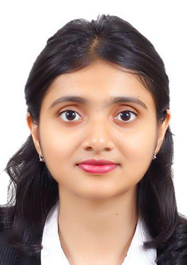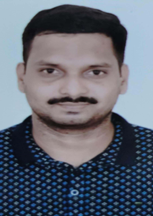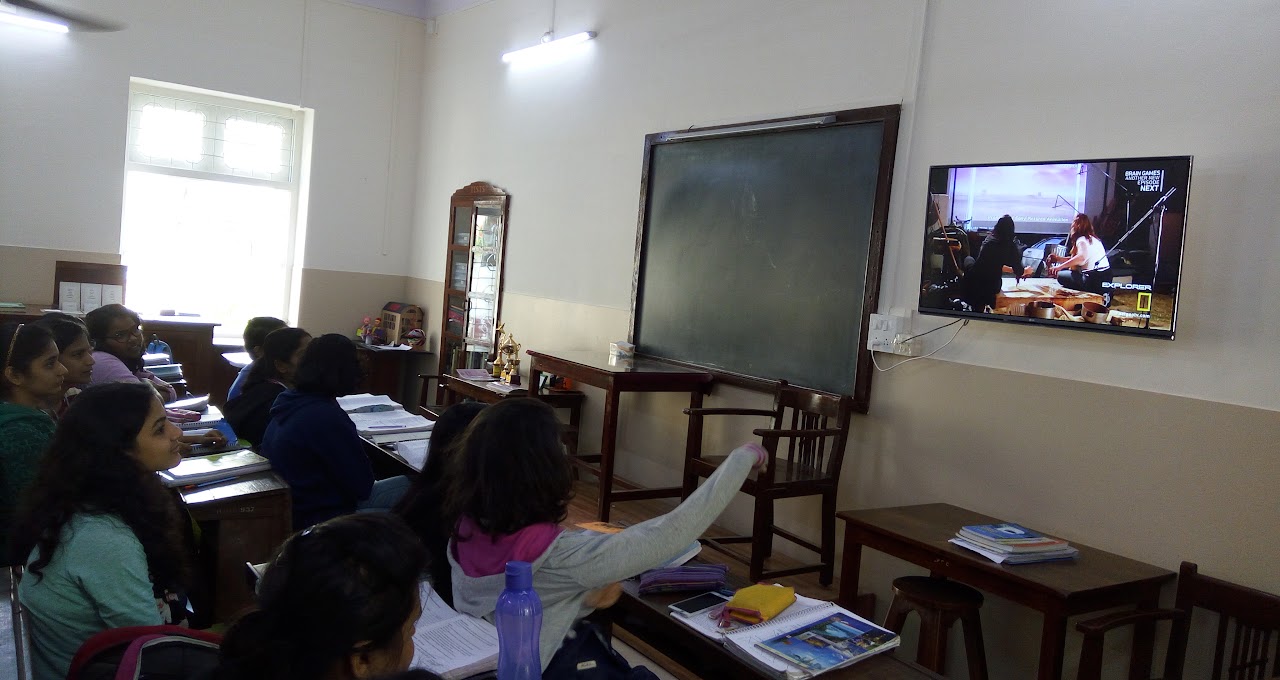
Year of Establishment : 1958
The Department of Psychology, established in June 1958, is one of the oldest and has rightly been recognized to be one of the best undergraduate departments of Psychology in University of Mumbai. The faculty members who ably nurtured the Department in its initial years were Dr. T. R. Kulkarni, Mr. K. M. Phadke, and Dr. P. K. Muttagi. Dr. Thomas A. D'Souza, a renowned psychologist, was the Head of the Department from 1960 till his retirement in 1980. In his 20-year stint, Dr. D'Souza made a significant contribution to the educational and vocational life of the students. Dr. Anagha Barve took over as the Head of the Department in 1981 and continued for 6 years till she migrated to Washington DC. Dr. Nandini Diwan, an alumna of the College, worked as the Head of the Department from 1987 to 2017. Her major contribution was to give stability to the department by bringing in structure and instilling the values of discipline and hard work. Her emphasis on ethical practices not only helped the students to create a strong foundation in professional sphere, but also in their day to day life.
The quality profile of the department was maintained through the contributions of Ms. Sabita Dawra (Babani), teacher at Junior College, from 1977 to 2003, and Mr. D. R. Pawar, Laboratory attendant from 1971 to 2010. Ms. Sabita, made an impact through her excellent teaching, and endearing, enthusiastic personality, inspiring many students to specialize in Psychology at Graduation. Mr. D.R. Pawar was well - known for his sincerity, sense of commitment, dedication, discipline, and hard work. Along with all these teachers, the department received excellent support from many other teachers, who in spite of their short service tenure, upheld the standards established by the department.
Throughout its existence, the department has always attracted highly motivated, talented sincere and hard-working students. Many of our alumni are today luminous stars in various spheres like Counselling and Psychotherapy, Industrial-Organizational Psychology, Human Resource Management, Mass Media, Social Work, Education of Exceptional Children, Teaching and Research in Mumbai, different parts of India and in many countries of the world.
Learners will
The learner will:
1. Develop an understanding of basic concepts such as Motivation, emotion, personality, cognition and statistics
2. Learn critical evaluation of the different perspectives, theories and measurements related to behaviour
3. Understand importance of mental health and develop interest in the field of psychology Develop and sensitize towards psychology as a helping profession
The learner will:
1. build knowledge of the basic concepts and modern trends in Social Psychology.
2. develop interest in Social Psychology as a field of study and research among students.
3. be aware of the applications of the various concepts in Social Psychology in the Indian context.
4. Sensitize students on the influences and impact of social influences on behaviour of individual and masses
The learner will:
1. build knowledge of the basic concepts and modern trends in Developmental Psychology.
2. develop interest in Developmental Psychology as a field of study and research among students.
3. be aware of the applications of the various concepts in Developmental Psychology in the Indian context.
Sensitize students on the influences and impact of various factors on development from adolescence to old age
The learner will -
1. develop knowledge and understanding of the nature, uses, technical features, and the process of construction of psychological tests.
2. develop awareness about measurement of intelligence and assessment of personality.
3. be equipped with the knowledge about the concepts in Statistics and the various measures of Descriptive Statistics - their characteristics, uses, applications and methods of calculation.
4.build a firm foundation, which will be helpful for advanced learning of Psychological Testing, Assessment and Statistics in postgraduate studies
The learner will
1. Develop an understanding of the basic concepts and theories of Abnormal Psychology.
2. develop insight into various forms of Psychological Disorders – their symptoms, causes, along with the process of diagnosis and treatment.
3. become more sensitised and equipped to deal with various issues related to Mental Health in society.
4.build foundational knowledge of Abnormal Psychology which will help the learner for higher education and also to pursue a professional career in Clinical Psychology.
The learners will
1. understand the scope of I/O Psychology and careers related to I/O Psychology.
2. Understand processes involved in Human Recourse Management including training, appraisal, motivation
3. built adequate foundation in evaluation and research methodologies
The learner will
1. develop understanding of the basic concepts and theories of Cognitive Psychology.
2. develop insight into theoretical aspects of cognitive processes
3. will build foundation in the basics of Cognitive Psychology which will help the learner for higher education and also to pursue a professional career in any of the several areas of Psychology
The learner will
1. Translate theoretical concepts into application-based experiments.
2. Learn conducting research and experiments following standardized procedure.
3. Apply statistical tests and analyze the data collected.
4. Write reports on research conducted using APA format.
5. Make sense of the research papers on any given topic
6. Understand the ethical practices involved in research
The learner will
1. identify unique features of Counselling as a profession.
2. understand the process to be followed while helping people and roles and responsibilities of the counselor.
3. identify key ingredients necessary for successful helping.
4. understand micro-skills required to practice Counselling.
5. understand theoretical foundations underlying different counselling and psychotherapeutic approaches and critically evaluate the strengths, limitations associated with each of them.
6. feel motivated to seek further training to practice Counselling
Learners will
1. understand how physical disorders are impacted by psychological factors
2. understand the role of psychological causal factors and therapeutic approaches and the importance of life-style management.
3. build knowledge of the basic concepts and modern trends in Health Psychology.
4. develop interest in Health Psychology as a field of study and research
5. awareness of the practical applications of the various concepts in Health Psychology in the Indian context.

Assistant professor
M.A. in Psychology,
Specialization : Clinical Psychology, NET
Year of joining the department - 2021

Assistant professor
M.A. in Psychology,
MSc. (Clinical) Psychology, UGC-NET 2023
Year of joining the department - 2024

Assistant professor
M.A. in Psychology,
MA Psychology, Specialisation - Clinical M-SET 2022
Year of joining the department - 2024
| SEMESTER-I | SEMESTER-II |
|---|---|
| UAPSY101 - Paper I – Fundamentals of Psychology | UAPSY201 - Paper I – Fundamentals of Psychology |
| SEMESTER-III | SEMESTER-IV |
|---|---|
| UAPSY301- Paper II – Social Psychology | UAPSY401- Paper II – Social Psychology |
| UAPSY302 -Paper III – Developmental Psychology | UAPSY402 -Paper III – Developmental Psychology |
| UAHP3A1 Applied Component – Health Psychology | UAHP4A1 - Applied Component – Health Psychology |
| SEMESTER-V | SEMESTER-VI |
|---|---|
| UAPS501 - Paper IV – Psychological Testing and Statistics | UAPS601 - Paper IV – Psychological Testing and Statistics |
| UAPS502 - Paper V – Abnormal Psychology | UAPS602 - Paper V – Abnormal Psychology |
| UAPS503 - Paper VI – Industrial – Organisational Psychology | UAPS603 - Paper VI – Industrial – Organisational Psychology |
| UAPS504 - Paper VII – Cognitive Psychology | UAPS604 - Paper VII – Cognitive Psychology |
| UAPS505 - Paper VIII – Practicals in Cognitive Processes and Psychological Testing | UAPS605 - Paper VIII – Practicals in Cognitive Processes and Psychological Testing |
| UAPSY506 - Paper IX – Counselling psychology | UAPSY606 - Paper IX – Counselling psychology |
